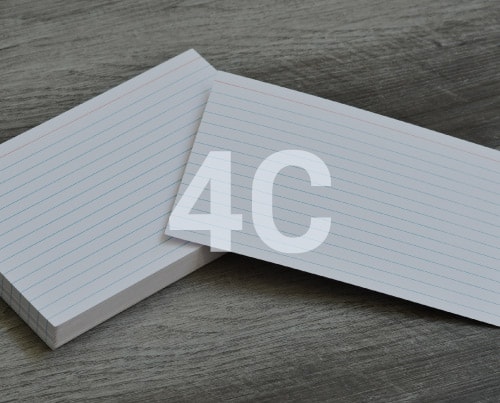Blog Post Heading
Blog Post Content
By Jess Gromada
Editor, MindEdge Learning
Flashcards—study tools used to assist in memorization—are a favorite for students who are studying and learning new information.
Why? Because repetition creates an efficient study method for the learner. However, simple memorization of flashcards alone may not suffice when you are trying to retain new or complex information.
Sebastian Leitner, a German science journalist, created the flashcard study method called the Leitner System to assist in more effective learning.
The Leitner System employs the concept of spaced repetition, which is an approach to memorization that uses time intervals. Rather than cramming information into your brain all in one sitting, spaced repetition encourages learners to space out learning over periods of time. Under the Leitner System, learners dedicate different time periods to studying certain flashcards and concepts, based on the learner’s own needs or preferences.
How to Get Started
To get started with the Leitner System, you need to do three things:
- Create electronic or physical flashcards (one card per concept)
- Label three to five electronic or physical boxes with study time periods (e.g., Box 1 for cards to be reviewed every day; Box 2 for cards to be reviewed every other day, etc.)
- Add your study times to your calendar for organizational purposes
How it Works
For the purpose of this example, we will use three study boxes labeled as follows:
- Box 1: every day
- Box 2: every other day
- Box 3: once a week
Every flashcard will start in Box 1. As you answer a flashcard correctly, move the card into Box 2. If you incorrectly answer a flashcard, place the card back in Box 1. Follow this method for each flashcard in Box 1. At the end of this round, you will notice that some concepts remain in Box 1—that means that these concepts are more difficult for you and require frequent studying. The cards that have graduated to Box 2, on the other hand, are concepts with which you are more familiar, so you do not have to study them as frequently.
Each time you get a card correct, you move it to the next box. Each time you get a card wrong, you move it back to the previous box. Once you have finished studying for the day, you will see which concepts are ones that you need to study more frequently, and which concepts may only require you to study them once a week.
Follow the same method on each study day until all of your cards have been moved to the last box. If it turns out that you have forgotten some concepts in Box 3 by the time that study day rolls around, move the cards to the previous box. Depending on how you have labeled your boxes and created your study calendar, you may only study one box of flashcards on certain days and multiple boxes on others.
Why it Works
The Leitner System provides brain stimulation that cannot be achieved just by passively reading new or complex information. By actively answering questions and recalling information we have studied, the Leitner System helps us access the information stored deep within our memories over a longer period of time.
When our brains are taking in a large amount of information at once, the rate at which we forget the information varies for each concept. Often, our brains cannot process all the information at once, making it more likely that we will forget a majority of the concepts.The Leitner System’s focus on spaced repetition and active recalling of information allows our brains to absorb the information and process it more effectively.
For some people, altering a familiar study method may seem like an overwhelming task. But the Leitner System retains the familiar core principles of studying flashcards, while incorporating new elements that allow a higher level of efficiency. Whether you’re studying for an exam, teaching yourself a new language, or learning a new hobby, the Leitner System can help you achieve your learning goals.
For a complete listing of MindEdge’s courses about online learning, click here.
Copyright © 2021 MindEdge, Inc.
